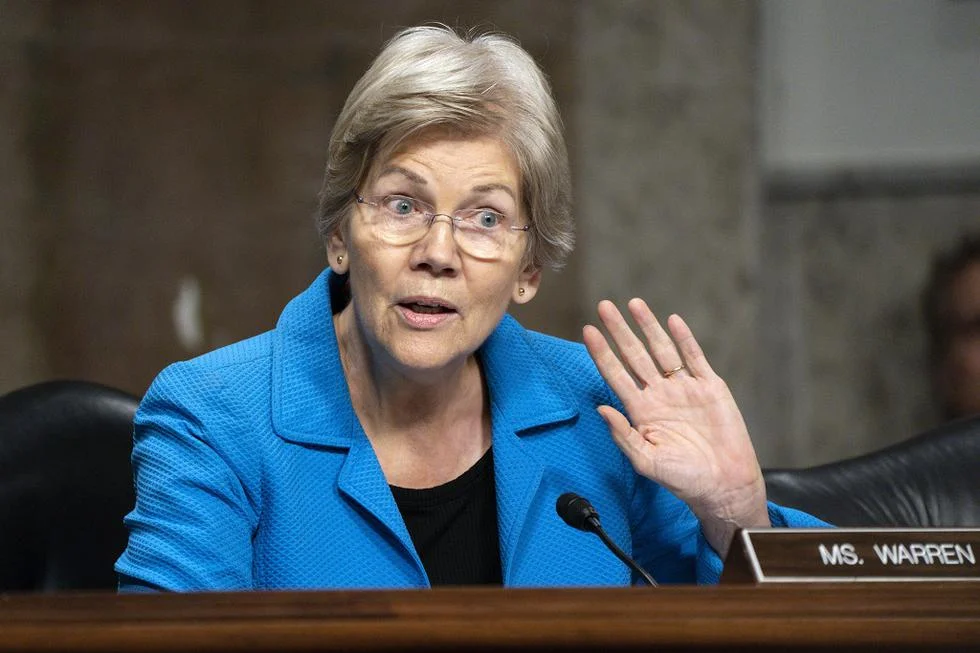Senator Elizabeth Warren responds to criticism from crypto advocates, affirming her commitment to fair regulations and consumer safety in the cryptocurrency and AI sectors.

Senator Elizabeth Warren, a vocal critic of the cryptocurrency industry, has defended her stance on crypto regulation amid backlash from industry advocates.
Warren reaffirmed her commitment to ensuring fair and equitable regulations in the cryptocurrency and artificial intelligence (AI) sectors, which she believes are essential for protecting consumers and fostering transparency and accountability in these rapidly evolving industries.
Warren’s Call for Fair and Equitable Regulations
Warren argues that the cryptocurrency industry must operate under the same regulatory framework as traditional financial institutions, such as banks and securities firms. She contends that this approach is necessary to mitigate the risks and harms that crypto assets pose to consumers, investors, and the financial system.
Warren cites several examples of the dangers and drawbacks of the unregulated crypto industry, such as volatility, fraud, scams, hacks, theft, tax evasion, money laundering, and environmental impact. She also points out the lack of consumer protection and recourse in the crypto space, as well as the potential for market manipulation and concentration of power.
Warren emphasizes the importance of a level playing field for all participants in the crypto and AI sectors, where everyone follows the same set of rules and standards.
She seeks to ensure that the crypto and AI industries are subject to the same oversight and accountability as other industries and that they do not pose a threat to the stability and security of the economy and society.
Warren’s Proposed Legislation and Its Criticism
As part of her efforts to regulate the crypto industry, Warren has introduced the Digital Asset Anti-Money Laundering Act, a bill that aims to address the concerns related to money laundering and illicit activities in the crypto space.
The bill proposes to treat decentralized technologies, such as blockchain nodes and noncustodial wallets, as financial institutions, and to subject them to the same anti-money laundering and counter-terrorism financing requirements as other financial institutions.
However, Warren’s proposed legislation has faced criticism from industry executives, organizations, and associations, who argue that the bill is ill-suited for the unique characteristics of decentralized technologies and could impede innovation and investment in the crypto space.
Critics claim that the bill is too broad and vague, and that it could impose excessive and impractical burdens and costs on the crypto industry. These critics also warn that the bill could drive away crypto businesses and users from the US and that it could stifle the development and adoption of beneficial and transformative technologies.
Warren has openly acknowledged the challenges and opposition that she faces as she continues to push for fair and equitable regulations in the crypto and AI sectors. Warren has highlighted the influence and power of the well-funded and well-connected crypto advocates, who seek to undermine her efforts to implement regulatory measures that would protect consumers and ensure fair competition in these rapidly evolving industries.
One notable challenge to Warren’s position comes from John Deaton, a prominent crypto-supportive litigator with a substantial following. Deaton has been leading a class-action lawsuit against the Securities and Exchange Commission (SEC) on behalf of XRP holders, who claim that the SEC’s lawsuit against Ripple Labs, the company behind XRP, has harmed them and violated their rights.
Deaton has also been vocal in criticizing Warren’s views and proposals on crypto regulation, accusing her of being uninformed, biased, and hostile towards the crypto industry.
